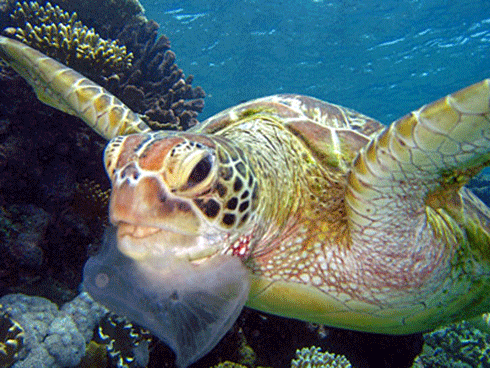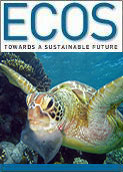
|
Published: 19 August 2013
Young turtles at sea more likely to swallow plastic
Endangered green and leatherback sea turtles are swallowing plastic at twice the rate they did 25 years ago, according to a recent study published in the journal Conservation International by researchers from the University of Queensland (UQ) and CSIRO.

|
|
Young ocean-going turtles are more likely to eat plastic than their older, coastal-dwelling relatives. Credit: University of Queensland
|
After analysing global research data from the past 25 years, the research team – including Denise Hardesty and Chris Wilcox from CSIRO's Wealth from Oceans Flagship – found that these two turtle species, in particular, appear to be eating more plastic today than ever before.
In fact, team leader Qamar Schuyler from UQ, said turtles ate more plastic than any other form of debris.
‘Our research [also] revealed that young ocean-going turtles were more likely to eat plastic than their older, coastal-dwelling relatives,’ Ms Schuyler said.
The study found that stranded turtles in areas with high concentrations of marine debris did not experience a correspondingly high probability of debris ingestion.
‘Amazingly, turtles found adjacent to the heavily populated New York city area showed little or no evidence of debris ingestion, while all of the turtles found near an undeveloped area of southern Brazil had eaten debris,’ Ms Schuyler said.
‘This means conducting coastal cleanups is not the single answer to the problem of debris ingestion for local sea turtle populations, although it is an important step in preventing marine debris input into the ocean.
‘Results from this global analysis indicate oceanic leatherback turtles and green turtles are at the greatest risk of being killed or harmed from ingested marine debris.
‘To reduce this risk, man-made debris must be managed at a global level, from the manufactures through to the consumers – before debris reaches the ocean.’
An estimated 80 per cent of debris comes from land-based sources, so it is critical to have effective waste management strategies and to engage with industry to create appropriate innovations and controls to assist in decreasing marine debris.
Source: UQ



